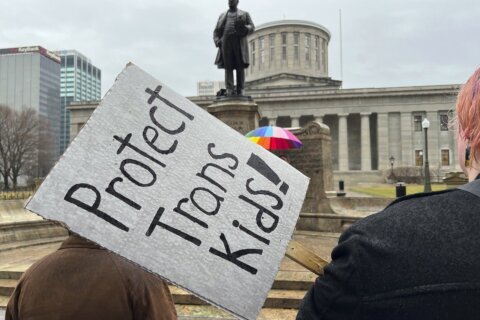CHARLESTON, W.Va. (AP) — A program that incentivizes West Virginia families to pull their children out of K-12 public schools by offering them state-funded scholarships will be able to resume, after the state Supreme Court issued an order Thursday reversing a lower court’s ruling.
The Hope Scholarship Program, which was scheduled to commence this school year and is one of the most far-reaching school choice programs in the country, was blocked by a Charleston-area judge in July after she ruled that the program violates the state’s constitutional mandate to provide “a thorough and efficient system of free schools.”
The West Virginia Supreme Court of Appeals order overruling that decision comes just two days after attorneys presented their oral arguments in court. Justices said they were “acting without undue delay given the nature of the constitutional matters at issue.” They did not provide their reasoning for their decision but said a more detailed opinion will follow.
State Treasurer Riley Moore, who serves as Chairman of the Hope Scholarship Board, praised the decision, calling it a victory for families over “out-of-state trial lawyers and liberal activists who are trying to block educational freedom and school choice.”
“The Hope Scholarship will provide families — particularly those with low incomes — the ability to pursue educational opportunities that best suit their children,” he said.
He said “effective immediately, this program is back up and running,” and that the scholarship board will meet as soon as possible to iron out the logistics of getting money to families.
Passed by the Republican-controlled Legislature last year, the law that created the Hope Scholarship Program allows families to apply for state funding to support private school tuition, homeschooling fees and a wide range of other expenses. More than 3,000 students were approved to receive around $4,300 each during the program’s inaugural cycle, according to the West Virginia State Treasurer’s Office. The first payments were supposed to go out in August but were put on hold while the lower court’s block on the program was in place.
Families can’t receive the money if their children were already homeschooled or attending private school. To qualify, students have to have been enrolled in a West Virginia public school last year or had to be set to begin kindergarten this school year.
In January, three parents of special education students sued the state, saying the scholarship program takes money away from already underfunded public schools. The lawsuit was supported by the West Virginia Board of Education. One family later withdrew from the case.
West Virginia Attorney General Patrick Morrisey, whose office led the appeal of the July ruling, said the state Supreme Court’s decision “will make an incredible difference for thousands of families across the state.”
“The Hope Scholarship Act opens more doors for West Virginia students while leaving public schools with the funding and other resources they need to remain strong,” he said.
Copyright © 2024 The Associated Press. All rights reserved. This material may not be published, broadcast, written or redistributed.






